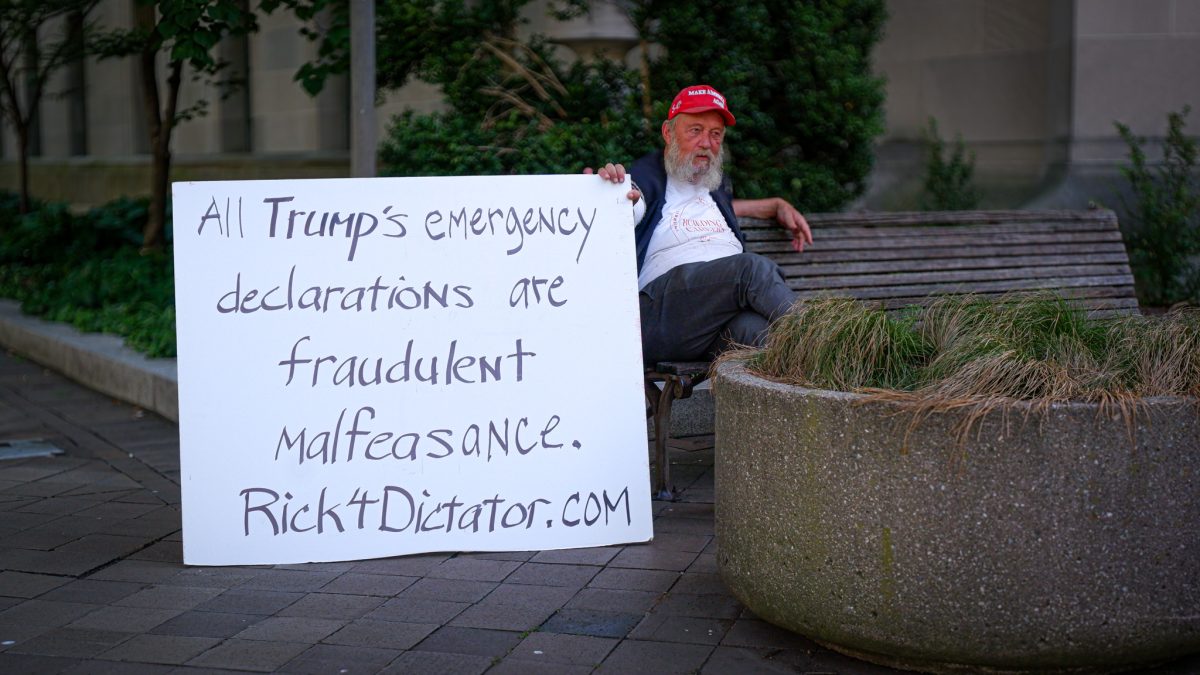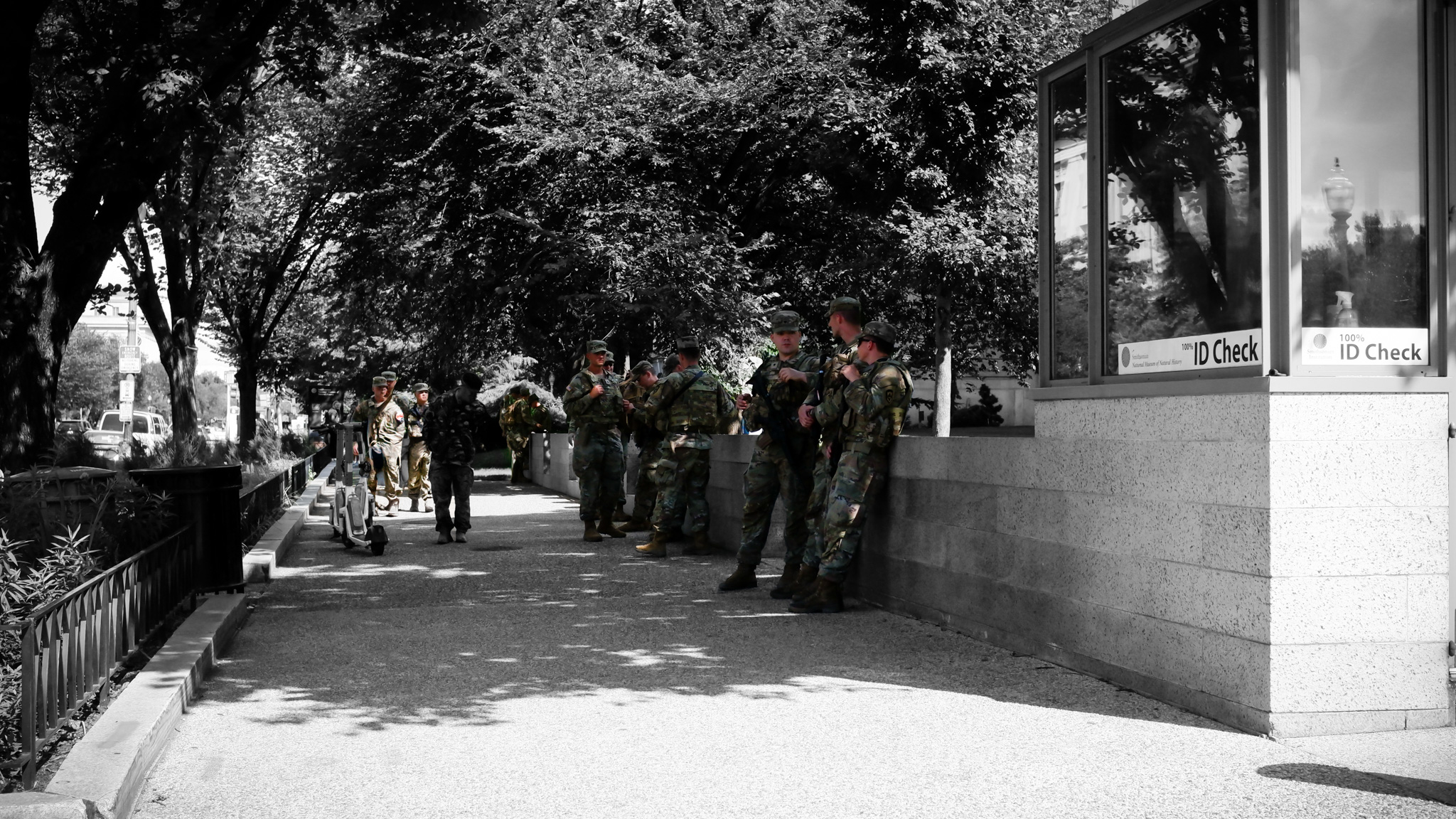Washington, D.C. is no longer just the stage of American democracy. It is a fortress. Soldiers with rifles line the streets where tourists once posed for photographs. Concrete barriers cut through boulevards. The air feels heavier than the August heat, thick with the unease of a city under surveillance. What was once an open space for protest, pilgrimage, and memory has been remade into a militarized Washington D.C.
The City That Breathed Fear
Step into the capital now and you can feel the shift. Museum workers say Washington D.C. tourism has suffered greatly. “No one comes to D.C. anymore,” one admits, glancing over their shoulder. Some refuse to talk about politics at all for fear of blowback. The few who do speak, speak in whispers.
Rideshare drivers confirm the decline. What once was a $40 fare is now $16, and after corporate cuts, they pocket only six. One driver told me bluntly: “I used to make a living. Now I just scrape by and if it keeps going, I do not know what is going to happen. There is no business here.”
The city that depended on outsiders—school groups, foreign visitors, the endless churn of conferences—is drying up. The numbers back it up: Tourism Economics projects a 5–6.5% drop in international visitors to Washington, D.C. in 2025, even as international spending nationwide briefly hit record highs earlier this year. Axios reported that “highly visible security measures have depressed tourism so far in 2025,” underscoring what locals already know.
And through it all, soldiers stand at intersections with weapons ready. They do not talk to the people. Press badge or no badge, they point anyone with a question toward the press office, like human roadblocks.
Power in Uniform
Even the soldiers are not free from scrutiny. Citizens follow them down the street with their cameras, asking what they are here for, snapping photos of the weapons held so openly. Their presence is unwelcome and you can feel it. They are not wanted in the streets of D.C., yet they are everywhere.
The White House insists this is security. But security for whom? It does not feel like protection. It feels like power on display. A capital city where the soldiers stand taller than the monuments and the people feel smaller with every checkpoint.

The D.C. Crime Statistics 2025: Numbers You Can’t Ignore
The striking truth is that Washington D.C. crime rates continue to fall even as militarization rises. According to the Metropolitan Police Department, overall crime in 2025 is down 8% compared to last year, with violent crime dropping 27%. Homicides have fallen 17%, from 126 to 104 cases. Sexual abuse cases are down nearly 47%, while burglaries have dropped 23% and auto thefts dipped by about 4%.
The U.S. Attorney’s Office added broader context, confirming that 2024 marked the lowest violent crime rate in more than 30 years. Compared to 2023, homicides dropped by 32%, armed robberies by 39%, and carjackings by more than half.
These figures suggest crime has been trending downward for years—not just since the arrival of National Guard in Washington D.C. troops. The numbers complicate the official narrative of a city plunged into chaos and “saved” only by federal militarization.
Fortress America
This is not just about inconvenience. It is about the cost of living under the gaze of soldiers where citizens once gathered freely. Businesses close. Workers go silent. Families bring their children to the Lincoln Memorial and find themselves in the shadow of Humvees.
Democracy does not breathe behind barricades. It suffocates. Washington D.C. was built as a city for the people, but when you walk through its streets today, it feels like the people have been pushed out.
The monuments still stand for liberty, but today the rifles stand taller. No matter where you turn, there is a soldier with his weapon. And that fact—undeniable, unavoidable, and unnecessary in light of the D.C. crime statistics 2025, is the story of this city now.





